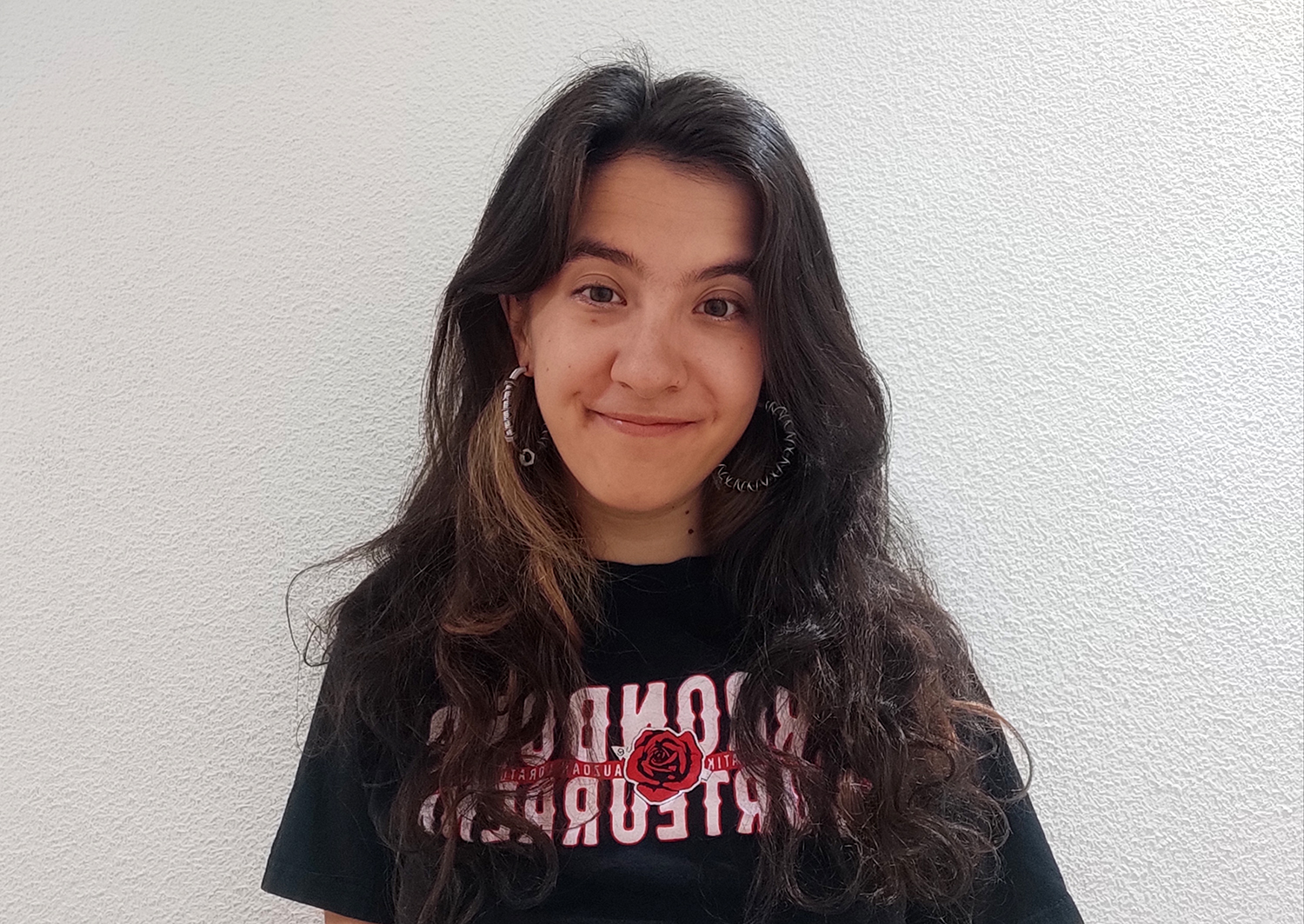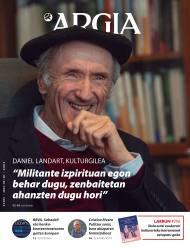"In the villages the feathers have room or at least my body has managed to fit"
- Anticapatist activist Itxi Guerra boasts the rhythm of Jot (Madrid, 1998). There is talk about the importance of penetrating to assess the violence that disabled bodies experience and face the system. It claims the habitability of the body: “We have to be a benchmark for children to see that they have a future and that diskas also exist and age without changing our bodies.”

- Written from a crippled body (Breaking and repairing the machine. Written from an invalid body) has published the book. Day 25 will be in Donostia, 17 in Getxo and 18 in Bilbao.
At the age of two, they gave him the diagnosis and since he was young people have made him “different”: “I don’t know whether it is good or bad, but different”. In the haurreskola she took a drawer to put her feet, took off the drawer and the children started playing. In addition, to always go to the fission they took out of class, they were placed separately in physical education and given comments out of place. From a young age, it was clear that disability is centered on medical discourse. At 17-18, he began to find UK texts denouncing capacitism, lecturing and politicizing disability: “I started a process of deconstruction of internalized capacitism. In addition, I began to see that my experiences were not individual but collective and structural.”
The war claims the term “disca”, summary of the word Spanish-ado-a-e, to empower people with disabilities, which retains political burden to the word disco. And that is, until 17-18, they've denied their bodies over and over again. “On an individual level I denied my body saying I didn’t want to be a disc. In addition, doctors, fission and another long said that my body was not going to be valid until it changed.” According to the war, the training system and the capitalist seek to “repair” the bodies of people with disabilities through medication: “Body disks are broken machines and not reproducible for the capitalist system. Therefore, they try to make a profit on our bodies, seeking greater functionality and profitability in order to obtain money or work with medication”. He thinks this has a lot to do with not showing vulnerability.
He adds that it is directly related to wanting to eliminate the disability, so he claims the pen disk: “Our goal is to learn why the pen can be nice. A friend told me that he liked it a lot when he was sent the audios, because they were sent to the rhythm of the jota. In the end I found it very nice to see the art auction.” To do this, surrounded by friends, little by little and without changing body, he has made a “painful” process to feel that he has a “stimulating” body: “We have made a process of revalorization and pride of people who have joined the album and have always tried to erase. However, if you don’t have a net it’s hard to put the pen on the table.”
He considers that in this process of arrogance it is necessary to take children into account and protect children, since in schools they receive “very capacitive speeches”: “We have to be a reference for children to see that they have a future and that the records also exist and we age without changing our bodies.”
"We have carried out a process of revalorization and pride of people who have assembled with disco and have always tried to erase"
Bidisk
Although it is of Madrid origin, it lives in Cerdejo (Galicia). It’s a small town where the pen is a “very funny” album: “In these villages, everyone is the album, because there are many old women who approach it.” In the town it hosts zumba classes and it is not defined how to dance, that is, there is no way to do it right or wrong, there are many ways to dance: "Everyone dances as they want and the teacher tries to make classes accessible because people want them to participate." He stresses that in Madrid he would have been “much more complicated” to participate in such an activity: “In the villages the feathers have room or at least my body has managed to fit.” However, due to lack of work, the scarcity of dissident and youthful sex and for other things, he considers that living in villages is “difficult”.
The War relates anti-Apacitism to many other struggles, such as anti-specialism, anti-capitalism, anarchism and the Cuir movement: “It’s very difficult to define what I suffer from having a disk and being cuir. It's all because I'm a bidiska." Therefore, the importance of reading the kuir identity from the record identity is highlighted: “It’s to accept our genealogy; until recently we’ve been read by people who can count on disk. Understanding Kuira as a disk is breaking the rules related to functionality.”
He adds that it has “a lot” to do with nonbinary and ways of persuading masculinity and femininity: “Women discs are not read as women because they anticipate that they cannot form a family, that they are not sexy and desirable and that they do not want. This questions what it is to be a woman.” He believes that by collectivizing and entangling struggles, tools can be developed to attack the system, like siesta.
A PART OF THE BODY?
"To perpetuate the ass and to love your hands."








